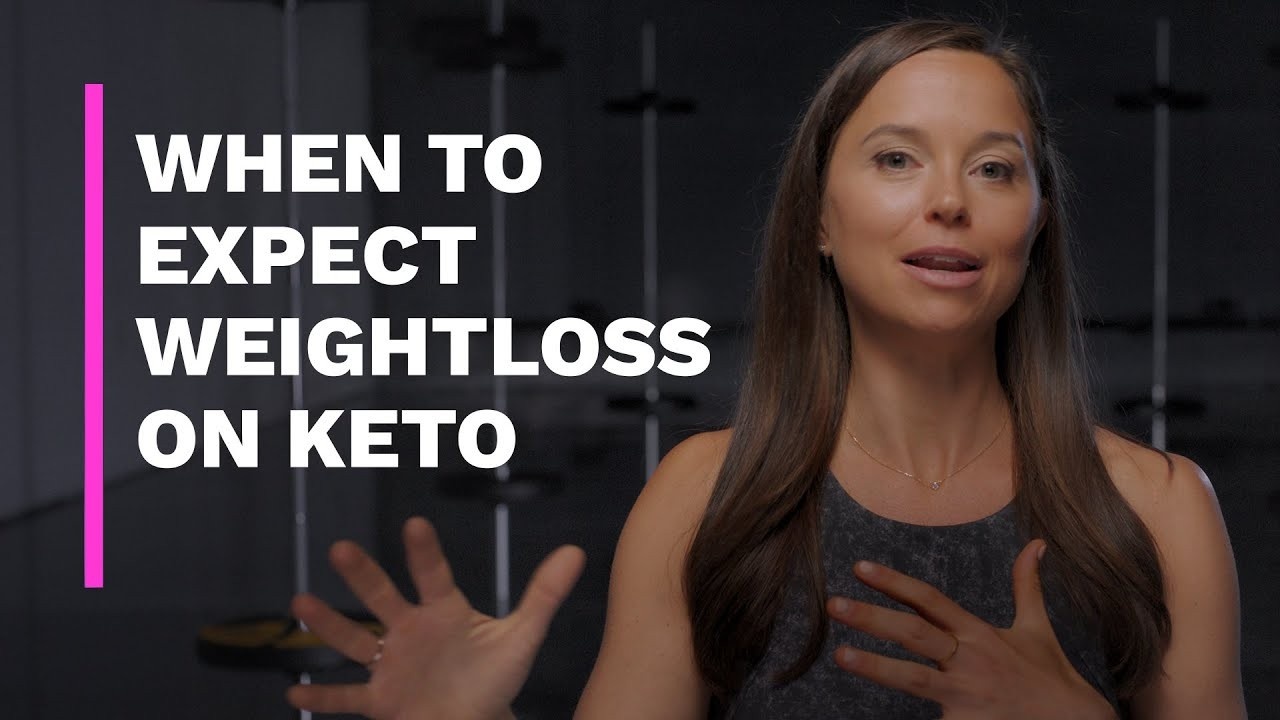
How Long Should It Take to Lose Weight on Keto?
May 03, 2022
How long should it take to lose weight on keto? Everybody is different. So the rate of weight loss is going to be different depending on the person. Let's talk about a few of those factors.
How Long Should It Take to Lose Weight on Keto?
Let's talk about what happens on the scale when we first start a ketogenic diet. When you lower your carbohydrate intake, it tends to cause your body to drop a lot of water. You may notice in the first day or two, that the scale drops a good amount. That is mostly water. And so we want to make sure that we kind of flush that out, so to speak, in terms of what we're paying attention to over the long term.
You may notice in the first week that you lose a large amount of weight on the scale, and then it kind of tapers off as you go. That's completely normal. That's going to be dependent on a few different factors. The main one is going to be your current body composition. How much body fat do you have? How much weight do you have to lose? The more weight you have to lose, the faster the process is going to be in the beginning. And as you lose that weight, it's probably going to taper off.
And if you don't have much weight to lose, it's probably going to be a slower process from the start. I like to think about this in terms of the rate of weight loss, if you want to put some numbers behind it. Typically, a good rate of loss is going to be 0.5 to 1% of your body weight per week. That allows us to put a percentage based on your body weight, not just an arbitrary number—like one to two pounds per week.
The overall thing to realize is that the more weight you have to lose, the faster the process is probably going to be and then it's going to taper off as you go. Another factor that plays into your rate of weight loss is going to be your overall health. If you have any underlying metabolic issues or hormonal issues or severe insulin resistance or things like that, that is going to play a role in how fast you lose weight.
The healthier you are, the more insulin sensitive you are—that is going to make things a little bit easier in the sense of your body wanting to lose weight. Your body can focus on losing body fat versus focusing on dealing with hormonal issues and metabolic problems.
How Active Are You?
The next thing to think about is how active you are. This is going to play a big role in the rate of weight loss because we know that if you are more sedentary, you're not going to be burning a lot of energy versus someone who is active all day. Think about what you're doing throughout the day and even how many steps you're taking.
Being aware of your activity is super important, especially if your goal is weight loss or fat loss. And that in itself can help you to speed things up. If you're going from more sedentary to adding in just more movement, it doesn't necessarily need to be exercise, but just more movement in general. Walking more, parking further away from the grocery store, taking the stairs instead of the elevator—all these little things add up over time, and that can help speed up the rate of loss.
The next thing is thinking about how consistent you are with your plan. There tends to be a time where we are following a plan and we're super excited at the beginning and then we tend to fall off a little bit and then get back on it.
Consistency is going to play a huge role in your rate of loss because the more consistent you are, the faster things are going to go. Sticking to the plan over the long term is going to speed up your rate of loss. When I say consistent, that doesn't mean that you have to be perfect—no one is perfect. It just means to do your best.
The Scale Isn't the Goal
We need to realize that the scale is not the end all be all—there are definitely other factors that are involved in terms of losing body fat. That includes data tracking, taking progress pictures, taking body tape measurements, monitoring how you're feeling throughout your day, and measuring how your performance is going in the gym—all of these factors play into your success over the long term.
Making sure that you're not getting too caught up on the scale is gonna be super important. If we're looking at the scale, make sure that you're paying attention to the weekly average or the bi-weekly average—because that's going to show you the long-term trend of what's happening. Ignore the daily fluctuations.
Want more advice on losing weight and building muscle on the keto diet? You've come to the right place. Check out the blog and the podcast for more discussions on these topics.
Ready to join a group of strong, confident, badass women?
Don't miss a beat!
Get my weekly tips, exercises, recipes, and more fun stuff to your inbox every Friday.
Your information is safe.


